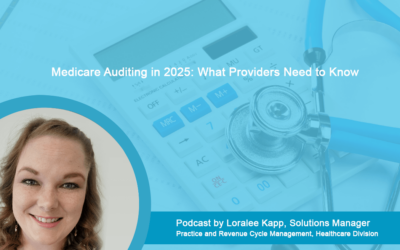An experienced dental billing outsourcing company, Outsource Strategies International provides comprehensive dental billing services that covers everything from patient scheduling and insurance verification and authorization to billing, payment collections, and accounts receivable management.
In today’s podcast Amber Darst, our Dental Insurance Coordinator discusses top dental billing mistakes that practices should take care to avoid.
Read Transcript
Hey this is Amber Darst, Dental Insurance Coordinator for Managed Outsourced Solutions. Today’s topic focuses on some very common dental billing mistakes a lot of practices have experienced.
Providing proper treatment and care is the primary focus of every dental practice. But submitting correct claims is critical to increase cash flow and improve collection. To do this properly depends on knowing the rules and regulations of insurers and following proper coding and billing practices. Outsourcing dental insurance eligibility verification and dental billing to an experienced service provider is a practical option for practices to improve their bottom line as well as avoid common billing mistakes that can be counted as fraud or abuse.
00:54 Key Dental Billing Mistakes
Let’s take a look at some of the top dental billing mistakes to watch out for.
First of is up coding. This is considered major fraud. Upcoding means billing for services that are more expensive than that which was actually provided. For example, fillings on a tooth when actually the dentist only provided non-covered sealants. Upcoding involves using codes for services patient did not receive or codes for more intensive procedures than the provider actually performed. Upcoding to evade insurance rules and get more money from the payer is closely scrutinized by insurance companies and regulatory agencies. Dentists should only bill for the level of services or items actually furnished.
Next we have unbundling. The American Dental Association finds unbundling of procedures as the separating of a dental procedure into component parts, each part having a charge, so that the cumulative charge of the components is greater than the total charge to the patients who are not beneficiaries of a dental benefit plan for the same procedure. Unbundling is using several CDT codes to report a service on a claim when actually one code is sufficient to capture payment for the component parts. For instance, the crown has numerous parts such as anesthesia, prep, impressions, temporary crown etc., and each of these do not require a separate code. Unbundling can be an inadvertent error or done deliberately to increase practice reimbursement. Practices should be familiar with applicable payer rules on which services are bundled or billed together.
Then we have billing for services not provided or not completed. Billing for services not performed or completed is another type of dental billing fraud. Examples include billing for surgery when the treatment provided was nonsurgical or such as billing for a crown at the prep time or before it is cemented.
Next, we have waiving the copayment or the deductible. Both government and private insurance companies do not allow dentists to waive the patient’s deductibles or copayments. Patients are responsible for their copayments and their deductibles. If providers waive the coinsurance requirements, it is considered fraud because it results in a false claim.
Then we have misrepresenting or altering dates of service. This practice involves reporting that the service for a particular patient was provided on 2 separate days instead of on the same day. Each office visit is usually regarded as a separate billing service and falsifying the date of service is done take advantage of this. The date on the patient’s medical file documentation should match the date of service listed on the claim form.
And last – not verifying a patient’s insurance eligibility. Oftentimes, front desk staff may assume that an established patient’s insurance coverage has not changed. But if it has and dental eligibility is not checked, the provider might get into some trouble. Terminated coverage, services not authorized, services not covered by the plan or maximum benefits reached and additional or primary coverage must be verified to prevent errors in claims. Failing to properly verify each patient’s eligibility before the date of service can result in unpaid balances, creating excessive AR. False claims can lead to severe penalties, loss of reputation and payment denial. The best way to avoid unintentional fraud is to maintain accurate documentation of all services provided. Partnering with an experienced dental billing company can ensure proper dental billing practices and error free claims submission. And that’s it.
I hope this helps but always remember that documentation and a thorough knowledge of payer regulations and guidelines is critical to ensure accurate reimbursement for the procedures performed. Thanks for listening in!



